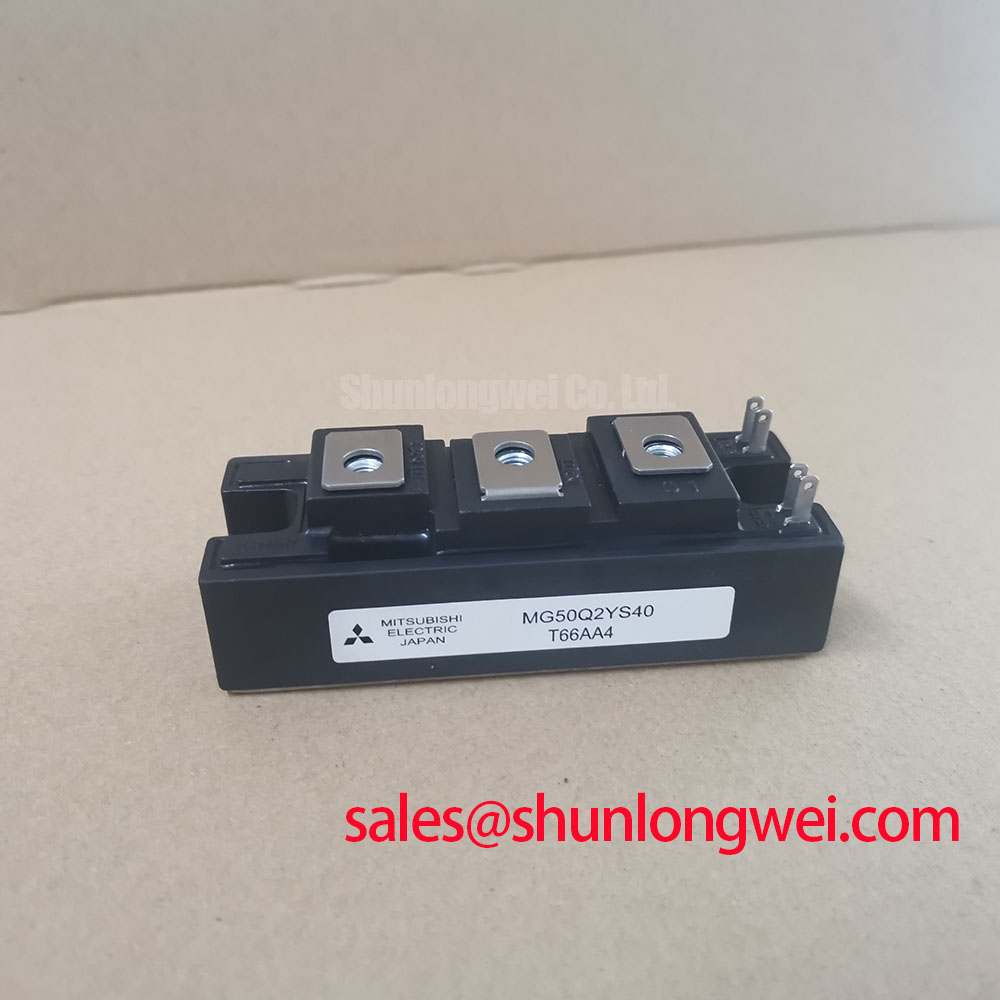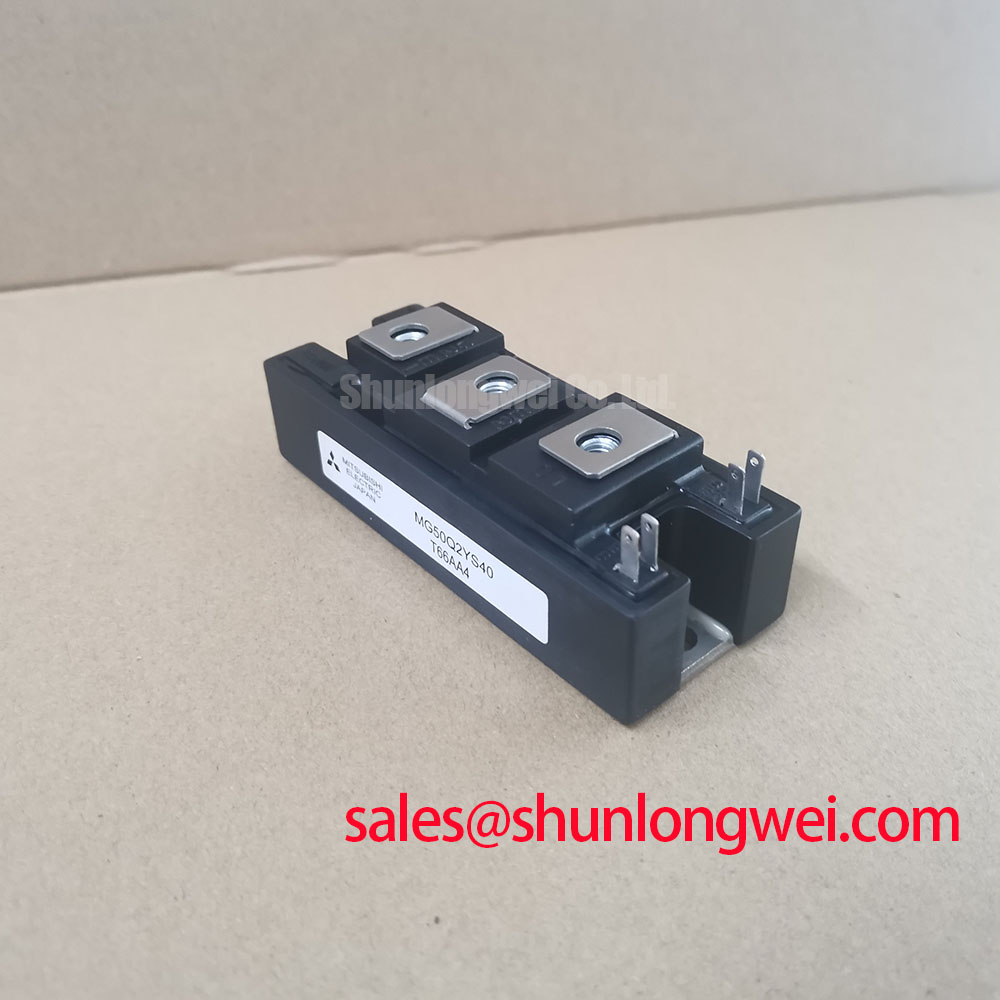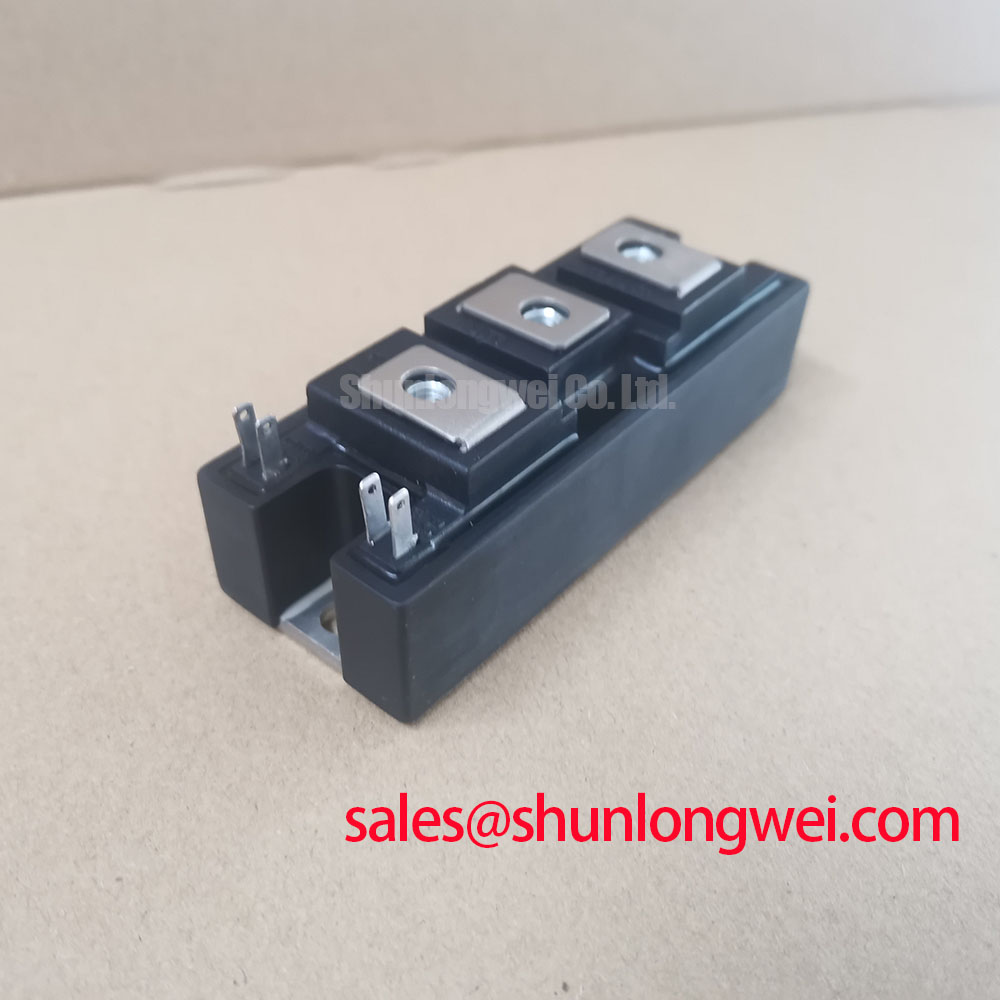Content last revised on November 11, 2025
Toshiba MG50Q2YS40 | A Robust 1200V, 50A Half-Bridge IGBT Module for Industrial Drives
The Toshiba MG50Q2YS40 is an industry-proven 1200V, 50A half-bridge IGBT module engineered for reliability and robust performance in demanding power conversion applications. While not built on the latest-generation silicon, this module represents a workhorse solution, valued for its durability and predictable behavior under stressful industrial conditions. It is an ideal choice for designers prioritizing system longevity and fault tolerance in cost-sensitive, moderate-frequency systems.
Key Electrical & Thermal Characteristics
For detailed specifications and operational curves, you can Download the official MG50Q2YS40 Datasheet. The table below provides a quick reference for core engineering parameters.
| Parameter | Symbol | Value |
|---|---|---|
| Collector-Emitter Voltage | VCES | 1200 V |
| Gate-Emitter Voltage | VGES | ±20 V |
| Collector Current (DC) | IC | 50 A |
| Collector Power Dissipation (Tc=25°C) | PC | 390 W |
| Collector-Emitter Saturation Voltage (IC=50A) | VCE(sat) | 4.0 V (Max) |
| Turn-on Time / Turn-off Time | ton / toff | 1.0 µs / 1.5 µs (Typ) |
| Short Circuit Withstand Time | tsc | 10 µs |
| Junction to Case Thermal Resistance (IGBT) | Rth(j-c) | 0.32 °C/W |
Technical Deep Dive: NPT Technology and Integrated Design
The performance profile of the Toshiba MG50Q2YS40 is rooted in its use of Non-Punch-Through (NPT) IGBT technology. Unlike modern Trench-Stop (TST) designs, NPT devices feature a thicker n-drift region. This architecture yields two critical engineering trade-offs:
- Inherent Ruggedness: NPT technology provides a wider Safe Operating Area (SOA), making the device exceptionally tolerant to voltage and current transients common in inductive load applications like motor control.
- Positive Temperature Coefficient: The VCE(sat) exhibits a positive temperature coefficient, meaning its on-state voltage increases with temperature. While this results in higher conduction losses compared to newer technologies, it is highly advantageous for paralleling modules, as it naturally prevents thermal runaway and ensures stable current sharing without complex balancing circuits.
The module's half-bridge (2-in-1) configuration integrates two IGBTs and two free-wheeling diodes into a single, isolated package. This significantly simplifies the layout and assembly of three-phase inverter bridges, reducing component count, minimizing stray inductance, and improving the overall reliability of the power stage.
Application Scenarios & Value Realization
The specific characteristics of the MG50Q2YS40 make it a strategic component in several key applications:
- AC Motor Drives & VFDs: In moderate-frequency variable frequency drives, the module's ruggedness and excellent short-circuit withstand time provide essential protection against motor faults and locked-rotor conditions.
- Welding Power Supplies: Welders present highly dynamic and often unpredictable loads. The MG50Q2YS40's robust SOA can handle the demanding power pulses required for various welding processes, ensuring long operational life.
- Uninterruptible Power Supplies (UPS): For industrial UPS systems where unwavering reliability is more critical than cutting-edge efficiency, this module's proven NPT design offers a dependable and field-tested foundation for the power inverter stage.
Engineer's FAQ for the MG50Q2YS40
Why is the VCE(sat) higher than on newer IGBTs?
The 4.0V maximum VCE(sat) is a direct characteristic of the older, yet extremely robust, NPT IGBT silicon design. The trade-off for this higher conduction loss is superior durability and a wider SOA, particularly under overload conditions. For applications where switching losses are the dominant factor, exploring modules with lower VCE(sat) is recommended. You can learn more in our guide to IGBT selection beyond VCE(sat).
Can this module be used in high-frequency (>20kHz) applications like EV chargers?
No, the MG50Q2YS40 is not optimized for high-frequency switching. Its typical turn-on and turn-off times (1.0µs / 1.5µs) would lead to excessive switching losses at frequencies above the low-to-mid single-digit kHz range (typically < 10kHz). It is best suited for applications like motor drives and UPS systems where switching frequencies are moderate.
For assistance in selecting the right IGBT module for your specific design constraints, whether it's for a new high-efficiency system or a reliable industrial workhorse, please contact our technical team to discuss your application in detail.












